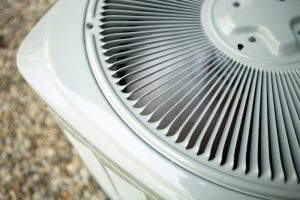 For many parts of the country, now is the time of year when people are just starting to think about their air conditioners—scheduling maintenance, handling any pressing repair needs, etc. For our part of the country, air conditioners are a little more at top-of-mind, being used for the majority of the year.
For many parts of the country, now is the time of year when people are just starting to think about their air conditioners—scheduling maintenance, handling any pressing repair needs, etc. For our part of the country, air conditioners are a little more at top-of-mind, being used for the majority of the year.
So, what kind of condition is yours in? Is it working as efficiently as possible? If you keep up on your annual maintenance sessions (or bi-annual, if you’re using a heat pump system), then your air conditioner should reasonably be able to maintain 95% of its efficiency throughout the system’s lifespan.
What if your system is aging, though, or if you haven’t kept up on maintenance over the years? Well, then soon enough you may discover that it is time to replace your air conditioner. And when that time comes, you want to ensure you’re selecting one that works as efficiently as possible right from the get go. So, what kind of ratings should you look at with your Gainesville, FL air conditioning installation?
SEER and EER: What You Should Know
First off, to understand these ratings, you must understand what we mean when we talk about efficiency. In simplistic terms, efficiency is a measurement of how well an air conditioning unit used electrical energy and converts it into cooling power. And cooling power refers to the power to remove heat (measured in British Thermal Units—BTUs) from the indoor air in order to send it through the refrigeration process.
A high efficiency cooling system will produce the same level of cooling as a lower efficiency air conditioner, but the difference is how much electricity it uses in doing so. All other factors being equal (which is rare), a higher efficiency air conditioner will cost less to run month-to-month than a lower efficiency one. Now, onto efficiency ratings!
EER: Energy Efficiency Ratio
EER is the baseline measurement of system efficiency. It’s the ratio of the amount of cooling in BTUs that an air conditioner deliver, to the amount of electricity consumed in watt-hours. It’s measured in a single test with set indoor and outdoor temperatures and humidity. The higher the resulting number is, the more efficient the system is. Theoretically, this should let it run more affordably.
SEER: Seasonal Energy Efficiency Ratio
EER is important, but an air conditioner’s SEER gives you a better sense of the unit’s overall performance and how much power it conserves—and consequently, how much money it saves you. SEER is essentially the same measurement as EER, except that it is the average of multiple tests taken over an entire cooling season, in a range of conditions, rather than just one test. This gives us, and you, a better idea of the level of performance you can expect from the system.
Is One More Important than the Other?
Typically, when shopping for a new air conditioner, you want to get the one with the highest SEER rating. However, that doesn’t necessarily mean getting the biggest air conditioner you can find (this will cause problems) nor does it mean buying the most expensive system you can find. Ultimately, the best thing you can do is work with a professional to ensure that any air conditioner you install is correctly matched for your specific home and needs.
At North Central Florida Air Conditioning, we are improving lives by improving homes. Contact us today and ask about our exclusive 10-year bumper-to-bumper warranty for all 16+ SEER equipment!







